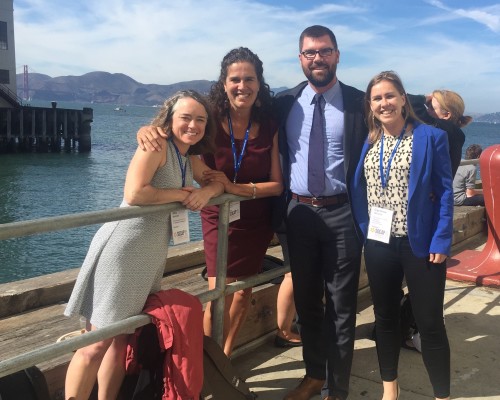Pay For Success Lessons from SOCAP15
Constructing Pay for Success contracts is an inherently cross-sector practice. Each of our projects brings together government, nonprofit, and private stakeholders to address our most pressing social issues. In a sense, the Pay for Success (PFS) model itself is an acknowledgement that no one organization can create effective and sustainable change on their own, without reaching across sector boundaries. The multi-party nature of our work brought us to SOCAP15, a national conference of social impact entrepreneurs and organizations that share our cross-sector approach.
At SOCAP15, Third Sector participated in two panels exploring the potential of PFS in the United States. Currently, the eight PFS projects launched in the United States are aiming to measurably improve the lives of people in need by leveraging $80 million in capital towards urgently needed reform in childhood education, criminal justice, homelessness, job training, and foster care. The first panel, “Social Sector Transformation through Pay for Success” explored the potential of the public-private partnership model, while the second panel, “Scaling Pay for Success,” addressed the challenges facing the expansion of PFS to more communities across the country. Our conversations with partners from the public, private, and nonprofit fields centered on two key themes:
1. Scaling PFS will require a balance of standardization and flexibility.
While unique issue areas, geographies and interventions make flexibility a crucial feature of PFS contracts, standardization will be essential for the replication of PFS and a reduction in the costs of project construction. As more projects are developed, new contract templates and precedents are being created that can expedite the contracting process. Third Sector has provided access to contracts from our launched projects (Cuyahoga County, Massachusetts, and Santa Clara County) so that others can learn from our work.
2. Pay for Success can address systemic challenges within the social sector. Operational hurdles, such as the lack of integrated data systems across government agencies, silos between social service delivery mechanisms, and limited service provider capacity, are significant obstacles to the effective delivery of social services. PFS can become a tool that not only scales evidence-based interventions, but also creates an environment for systems reform. In Cuyahoga County, PFS has integrated child welfare and homelessness data systems, empowering service providers to better serve children in out-of-home foster care whose families are homeless (Details availabe in the case study). PFS can facilitate the systems reform necessary to deliver effective services across multi-dimensional issue areas.
If you weren’t able to attend, watch our Co-President and Co-Founder Caroline Whistler present on “Social Sector Transformation through Pay for Success” below:
For more information on SOCAP15, Pay for Success, or Third Sector Capital Partners, please contact Laila Goldberg.
Blog post written by Kayla Pak, Laila Goldberg, and Drew Tulchin.


